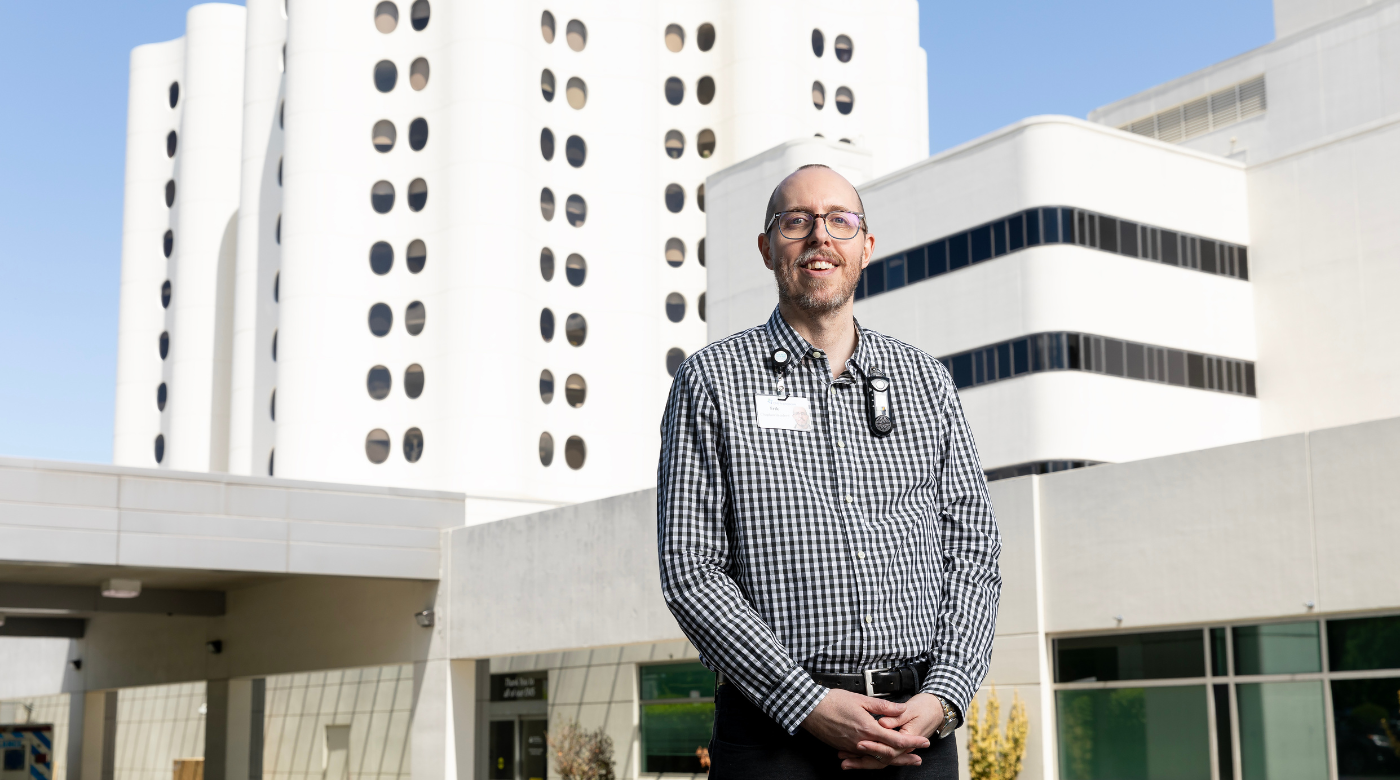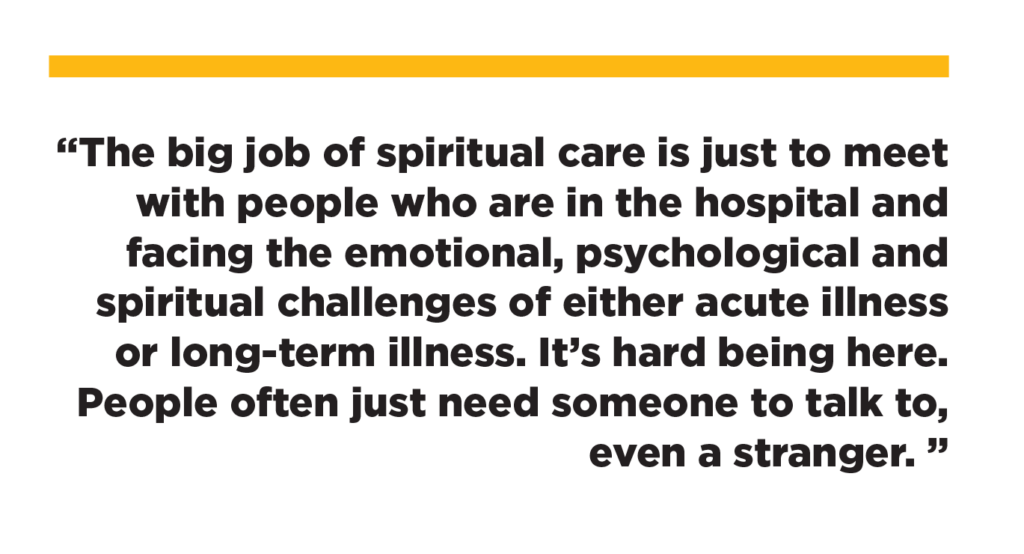Spiritual Care: Professor Erik Hammerstrom listens and learns during a sabbatical year spent as a hospital chaplain

Image: Global studies and religion professor Erik Hammerstrom has spent his career researching and teaching about the history of Chinese Buddhism. (PLU / Sy Bean)
By Zach Powers '10, MFA '24
Resolute Editor
Global studies and religion professor Erik Hammerstrom has spent his career researching and teaching about the history of Chinese Buddhism. He’s a quintessential teacher, beloved by students for leading engaging discussions, his imaginative project assignments, and planning field trips to nearby temples.
It’s hard to imagine Hammerstrom in his element anywhere other than the front of a PLU classroom. That is, up until this year. Inspired by his Buddhist faith, Hammerstrom has gone from lecturer to listener. He took a sabbatical from PLU to complete a one-year residency as a chaplain at St. Joseph Medical Center in Tacoma. This experience is a major step toward completing a chaplain certification program through the Association for Clinical Pastoral Education. We visited Professor Hammerstrom before a shift at St. Joe’s to discuss his experience.
What originally piqued your interest in chaplaincy service?
The values of the Buddhist tradition originally attracted me to it. I became aware of the intersection of Buddhist practice and chaplaincy about 25 years ago when I volunteered at a hospice. As a Buddhist, part of the orientation of our tradition is compassion and care for others, as well as getting over yourself and becoming less self-involved.
Interesting, that sounds quite a bit like our orientation at PLU, as well.
Yes, definitely. Buddhism emphasizes care, and that certainly is a PLU value as well. At PLU, there is a very forward notion that life is about more than yourself. Other people need help, and other people need service.
What is your day-to-day like here at St. Joe’s?
During my shifts, I am a working chaplain at the hospital, so I serve people’s religious needs. I pray with them if they want prayer. I did that today for someone before they went into surgery. That’s really common. I’m often with families who just lost a loved one in the emergency room or the ICU. I also spend a lot of time just moving around the hospital and talking with folks.
I think when folks think of chaplaincy work, it’s often those intense moments – like you mentioned outside of the ER and ICU – that come to mind. How do you approach those sorts of moments?
The big job of spiritual care is just to meet with people who are in the hospital and facing the emotional, psychological and spiritual challenges of either acute illness or long-term illness. It’s hard being here. People often just need someone to talk to, even a stranger. I’ve found that if you’re approachable and nonjudgmental, people will be able to share about what they’re experiencing and what they’re feeling. Sometimes they’ll even open up about struggles with their personal beliefs or how they think about theology, God or the universe.
How does this work compare to being a professor?
In many ways, being a chaplain is the total opposite of being a professor.
Oh, interesting. That’s not necessarily what I was expecting. Why is that?
One of the most important things you can do when you enter someone’s room to provide spiritual care is to let go of everything. If you go in with a pre-conceived story about what would be good for them, then you’ve already failed them as a spiritual care provider. Our job is to be present, to witness them living out their lives and their story, and to trust that they know better than we do what they’re going through. We’re just there to listen and provide support. That’s a good skill to have with students, but I can’t walk into a classroom and not have a story prepared when I’m teaching. I have to lean on the expertise that I’ve developed over many years. I have to be an expert, I have to guide my students, and even tell them what to do. In spiritual care, it’s totally the opposite.
In addition to your strong faith and religious knowledge, what inherent personality qualities do you have that made you think chaplaincy service may be a good fit for you?
The world has so many needs right now, and there are lots of things I can’t do to help, but this seemed like something I could do. I think I have a capacity for being nonjudgmental and present. I’m able to be calm, withstand someone else’s anguish, and be with them in their anguish but not let it overwhelm me. Chaplaincy work can be difficult. Not everyone’s cut out for it, but I thought it would suit my capacities as well as my spiritual values, and that has been true. Which is very affirming.
Do you plan to integrate your chaplain certification with your teaching and academic research when you return to campus this fall?
I am hoping that this work can connect with some of PLU’s new health care programs and initiatives like the Partnership for Health Innovation. I’m interested in doing research in the field of spiritual care, particularly the intersection with Buddhism. I’m also inspired by religion professors like Suzanne Crawford O’Brien and Brenda Llewellyn Ihssen in the Department of Religion who have developed classes with health care majors in mind and teach about religion, religious diversity, healing history, the confluence of religion and health care.




